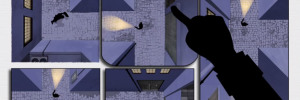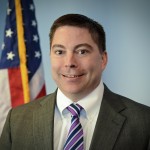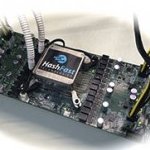Anyone who has spent any time with the various Star Trek TV series has had a discussion (or, more likely, an argument) about which of the series' captains is the best (Kirk, obviously). More enthusiastic fans will even extend that to other character archetypes—who's the best first officer? The best doctor? The best chief engineer? The best non-human-who-gradually-discovers-his-or-her-own humanity? These characters exist across just about every one of the franchise's five TV shows, which makes it easy to compare and contrast.
Re-watching "Rascals" for our list of least-favorite The Next Generation episodes brought to mind another kind of Star Trek character: the kid. TNG and its successors were happy to sprinkle the occasional child in with the rest of the crew, but the writers rarely seemed to know what to do with children and adolescents on shows that were mostly about adults putting themselves in adult situations. After some exhaustive research, we have compiled a list of the most prominent recurring Star Trek kids to see what made them tick—we wouldn't take all these characters with us on our next five-year mission, but we wouldn't shoot them out the airlock either.

Wesley Crusher
The Next Generation
Oh, Wesley. Wesley, Wesley, Wesley. Wesley. I'm glad that Wil Wheaton has become a sort of nerd elder statesman in recent years, because no human being deserves to be remembered best for playing Wesley Crusher. He's one of the most problematic characters in the Trek pantheon, though it was mostly the writers' fault.
The TNG writers' bible describes him as a standard-issue boy genius, a sort of Doogie-Howser-in-space. On screen, Wesley was an insufferable know-it-all who was difficult to identify with and constantly underfoot. One week he's putting everyone in danger by hanging out with some weird interdimensional super-being, the next he's putting everyone in danger by letting nanobots loose on the ship. One time he got the death penalty on some vacation planet. The best Trek episodes are generally either high-stakes adventure tales, touching stories about humanity that just happen to be set in space, or plots that use futuristic technology to comment on modern-day problems. Wesley-centric episodes very rarely draw from any of those wells.
On some level, the writers must have felt this. As TNG continued its run, it started to shed things that weren't working, a list that included Counselor Troi's accent, Riker's clean-shaven face, and Wesley-heavy plots. Wesley spent most of the rest of his time on the show perched at the helm of the Enterprise, parroting sensor readings and trying not to violate the Prime Directive. Wheaton will freely admit that this left him bored and frustrated, and by the time he left the show in its fourth season he wasn't exactly giving the show his all, even when his character had something to do.
One of Wesley's biggest problems was that he didn't really have a strong relationship with any other members of the regular cast. TNG is full of successful pairings (Picard-Data, Geordi-Data, Picard-Riker, the list goes on), but Wesley wasn't really a part of any of them. The familial bond between Wesley and his mother Beverly was seen intermittently at best and was central to neither character's arc (Wesley doesn't seem too broken up about it when Beverly is absent in season two, and Beverly doesn't seem too upset when Wesley leaves for Starfleet Academy in season four). The closest the show gets is when it uses Picard as a sort of father figure for Wesley, as it does in his final episode as a series regular and in one of his post-departure guest episodes.
In fact, season five's "The First Duty," is probably the character's strongest. Wesley is dealing not just with the loss of his friend, but a deep and very real inner conflict between his desire to do the right thing (own up to his partial responsibility for the death) and his desire not to get caught, thus endangering his academic career and disappointing those he wants to impress. It doesn't redeem his character, but it's the kind of Wesley story that the show could have pulled off more often if the writers had known what to do with him.
Final grade: D+

Alexander Rozhenko
The Next Generation and Deep Space Nine
Worf's son Alexander doesn't inspire the intense negative reactions that Wesley does, since he isn't an insufferable boy genius. His greatest character flaw is probably that he's a walking TV Trope—examining his character's arc is basically a handbook for how not to write a kid on a TV show. Witness:
- He is birthed off-camera after a fateful one-night stand.
- Throughout the run of TNG, he appears and disappears as stories require, but generally doesn't drastically change his father's life.
- He later travels back in time from the future to save Worf from something-or-other.
- Rather than deal with him on DS9, the writers sent him back to Earth to live with Worf's adoptive parents. He is never mentioned again, until...
- He shows up in a late-run DS9 episode, suddenly a young adult despite being eight years old. Rapidly aging-up young characters is a cheat for when writers don't want to have to deal with kids. Of course, the show's producers and fans will tell you that it's because "Klingons mature faster, okay?"
Alexander does very occasionally highlight Worf's softer side, though by-and-large Worf mostly seems worried that his son isn't "Klingon" enough. That's the engine that drives most of their plots: Worf wants Alexander to engage with his heritage, Alexander usually doesn't want to, and Worf begrudgingly swallows his disappointment. Worf is the dad who wants you to play football because he played it, and if you don't like it, well, that's on you. It usually makes the fan-favorite character seem like kind of a jerk.
Alexander isn't a huge component in many episodes, but the archetypal example is probably season six's "A Fistful of Datas." Some of Our Heroes are visiting the past in the holodeck (AGAIN) when the safeties shut off (AGAIN) and turn what was once a faux-dangerous situation into an actually dangerous situation (AGAIN). It's lightweight, formulaic, and mostly inconsequential. Just like Alexander.
Final grade: C-
Listing image by Memory Alpha






You must login or create an account to comment.